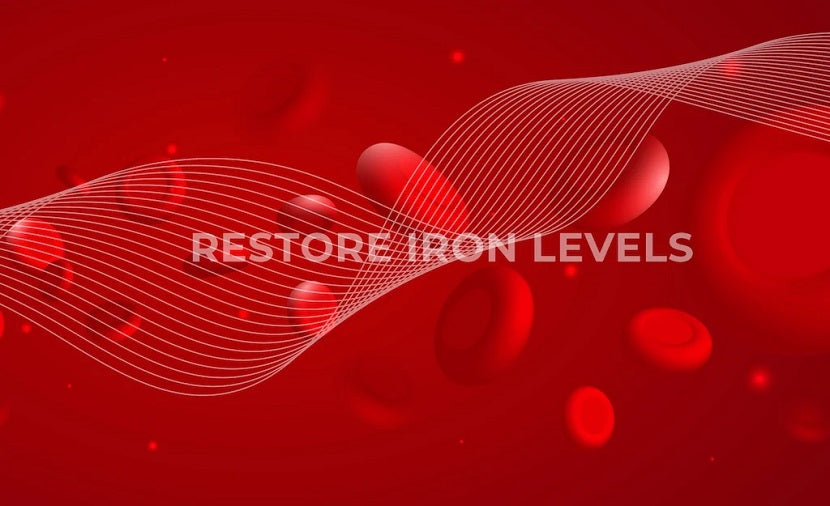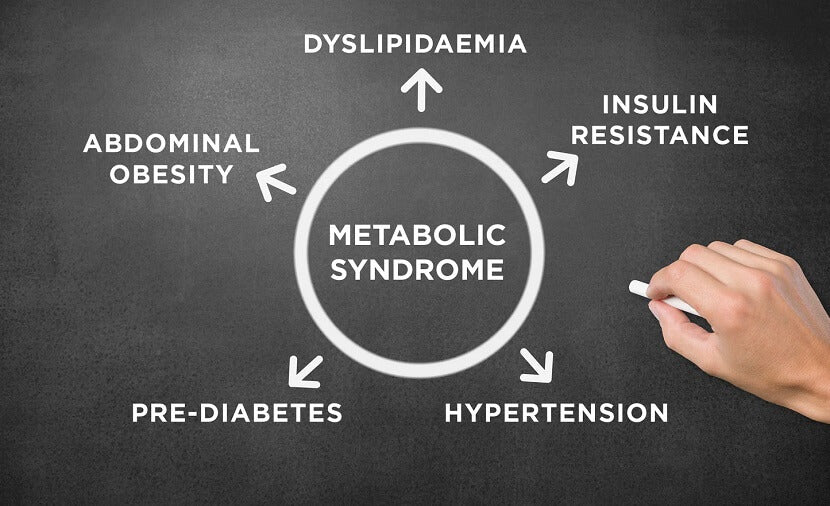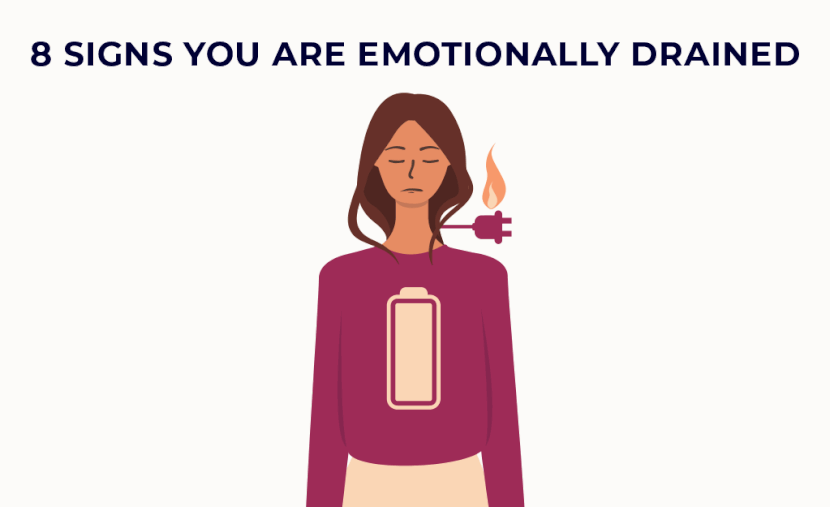Iron is the most abundant mineral on the planet, yet iron deficiency remains one of the most common health issues globally. Understanding iron metabolism and its deeper impact on the body is important before simply supplementing with iron, which is not a permanent solution and can have side effects of driving further inflammation.
Addressing the cause of the deficiency and why the body is not holding iron is key. In this article, we explore the role of key minerals like copper and magnesium and why they are essential for addressing iron deficiency, especially when dealing with anaemia.
Where does the body get its iron from?
The body gets a significant amount of its iron from recycling old red blood cells, a process primarily carried out in the spleen. Through this recycling, the body can meet its daily iron needs without relying solely on dietary intake.
However, if iron regulation is disrupted due to deficiencies in copper or magnesium, or increased inflammation, the recycling process becomes inefficient, leading to iron deficiency anaemia.
In addition to this, iron is the most abundant mineral on the planet and is easily derived from both our food and the soil. Even in vegetarian diets, iron is a commonly found mineral. So why is iron the most common mineral deficiency?
Addressing Blood Loss
The most common cause of anaemia is blood loss which needs to be addressed first and foremost. If you are bleeding regularly then the cause of this needs to be identified. Any heavy bleeding or blood loss must first be addressed, as it depletes the body's iron stores rapidly.
Conditions such as heavy menstrual bleeding, gastrointestinal bleeding, or surgery can cause significant iron loss, making it essential to stop the bleeding before focusing on iron regulation.
If the bleeding is from heavy periods, then Happy Period is your first choice. For gastrointestinal bleeding this needs to be medically addressed, however, Happy Digestion can help soothe inflamed digestive tracts.

How to correct iron stores without iron
Copper and magnesium play crucial roles in iron metabolism. Copper is essential for the function of enzymes like ceruloplasmin, which oxidizes iron and makes it available for hemoglobin production. Without adequate copper, iron cannot be properly utilized, leading to anaemia despite sufficient iron intake.
Magnesium, on the other hand, supports overall energy production in cells, including those involved in iron metabolism. It helps maintain the balance of iron within cells and assists in the proper functioning of enzymes that require iron as a cofactor.
When you combine both copper and magnesium, overall mineral regulation improves and hence iron levels start to normalise.
Inflammation, Reactive Oxygen Species, and Iron Stores
Another important contributing factor is inflammation where reactive oxygen species (ROS) can significantly reduce iron stores in the body. When the body is inflamed, iron is often sequestered by cells as a defence mechanism, leading to lower circulating iron levels and contributing to anaemia. Additionally, taking iron supplements can sometimes exacerbate inflammation, further complicating iron regulation.
This is where products like MSP Magnesium Sleep Pain -- which contains both magnesium and copper -- become valuable. By providing magnesium in several forms along with anti-inflammatory herbs Boswellia and Turmeric, MSP helps reduce inflammation and ROS, allowing the body to regulate iron more effectively. When the body's iron regulation is optimized, iron levels can normalize, reducing the need for excessive supplementation.
Conclusion
Iron deficiency is less about the availability of iron and more about how the body regulates it. By managing inflammation and ensuring adequate levels of copper and magnesium, the body can effectively manage iron metabolism, preventing anemia and promoting overall health.
Addressing any underlying causes of blood loss is also critical to maintaining healthy iron levels. Products like MSP Magnesium Sleep Pain can provide the necessary support to optimize iron regulation and reduce inflammation, ensuring that the body's iron levels normalize naturally. Red blood cells take 3 months to fully develop so give it this time for the body to restore ideal levels.









Leave a comment
This site is protected by hCaptcha and the hCaptcha Privacy Policy and Terms of Service apply.